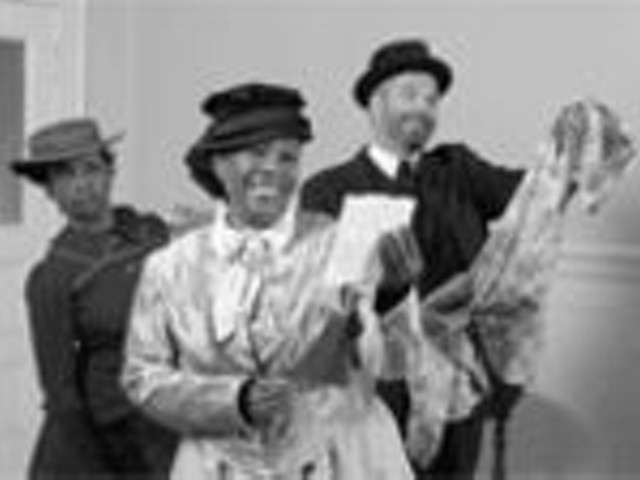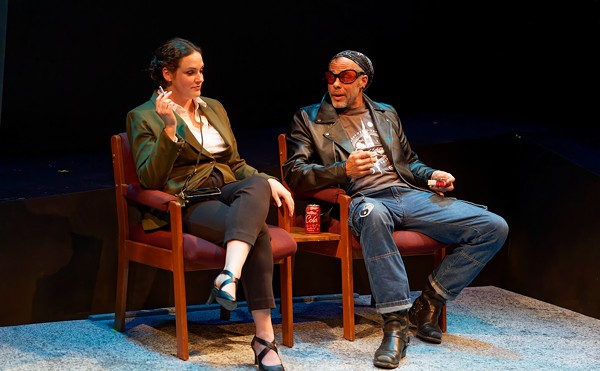When first produced in 1938, The Boys from Syracuse immodestly promoted itself as "a musical comedy sensation." Why? Because it was the first Broadway musical to draw on Shakespeare for its plot. An adaptation of The Comedy of Errors, it tells the tale of two pairs of twins (two masters, two slaves) who were separated at birth. As master and slave alike find themselves in the wrong beds with the wrong wives, ancient Ephesus gives new meaning to the phrase "city of brotherly love." But librettist George Abbott retooled, sped up and one-lined Shakespeare's already slapstick plot so that even fans of the Marx Brothers could respond to the material.
Alpha Players is mounting the 1963 off-Broadway revival version, which Rodgers supervised. No effort was made to stuff the show like a turkey with popular Rodgers & Hart hits from other musicals. Nor did anyone try to update Abbott's original script. The Boys from Syracuse remains essentially what it was -- with this caveat: What in 1938 was impertinently fresh is now old-fashioned in the most affectionate sense. A familiar waltz like "Falling in Love with Love" (performed with poise and clarity by Kay Love) doesn't advance the plot; it doesn't reveal character. It's simply a classic American standard from an era when Broadway supplied the nation with many of its most enduring songs. When Christopher Hickey and Rachel Heidbreder sing the breezy "This Can't Be Love," or when Hickey soft-shoes his way through "Dear Old Syracuse" in sandals, you can sense the actors' pleasure in being allowed to perform these gorgeous Rodgers melodies and witty Hart lyrics.
Late in Act Two, Heidbreder and Love are joined by Aimee Davis for the show-stopping "Sing for Your Supper"; it's a female trio so sassy and ebullient that for a moment you're able to forgive, if not forget, some of the production's shortcomings. The overture, for instance. Why does it begin with such a bland orchestration of the jazzy "Sing for Your Supper?" And why is it that our local community theaters have such a problem finding strong brass musicians for their pit orchestras? Better to eliminate the trumpet part altogether than to allow one musician to wreak so much dissonant mischief.
Here's another concern: When a show has a director, a musical director, a choreographer and a conductor, you'd think that at least one of the four could figure out how to "tag" a song so that the viewer knows when it's over. In too many of these numbers, the audience begins to applaud prematurely or does not applaud at all after the song has ended. The viewers are having a good time, but they need to know when it's their turn to bestow appreciation.
There was an uncertainty about the opening-night performance that suggested it was actually the final dress rehearsal. But one assumes that the evening will tighten up with continued playing, especially with such likable performers as Dennis E. Shelton and Marc Strathman portraying the twin slaves. Shelton seems to have been influenced more by Jimmy Durante than any Marx brother, which is just fine. And did we mention Jamie McKittrick as the head courtesan? Her big, bust-out number "Oh, Diogenes!" is best viewed as a plucky homage to Ann Miller.
This week the Bard makes his annual appearance in Forest Park with the magic and mystery of The Tempest. But for those undemanding theatergoers who might drink more heartily of Shakespeare Lite, this gambol through ancient Greece is a lot of fun.





